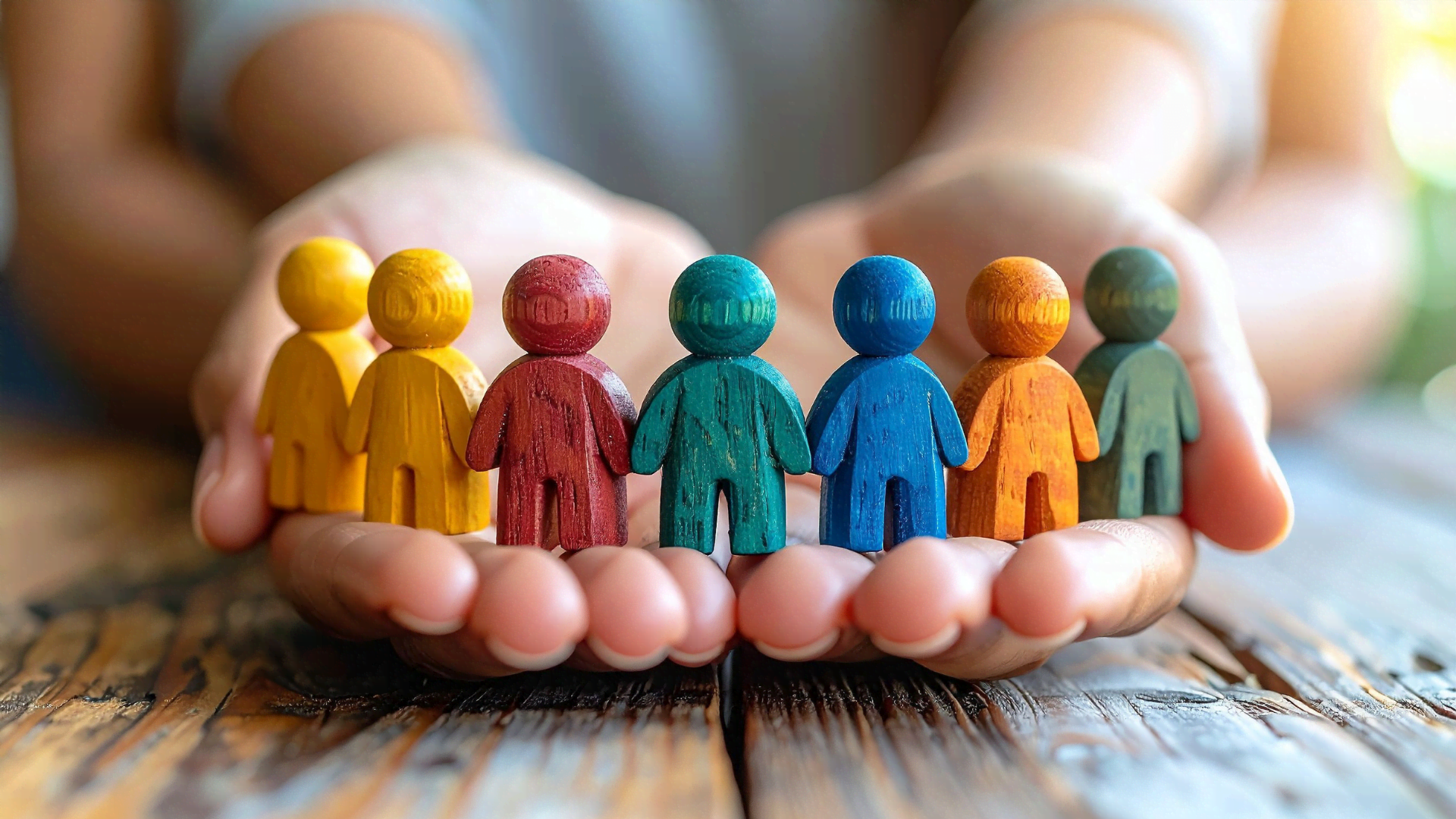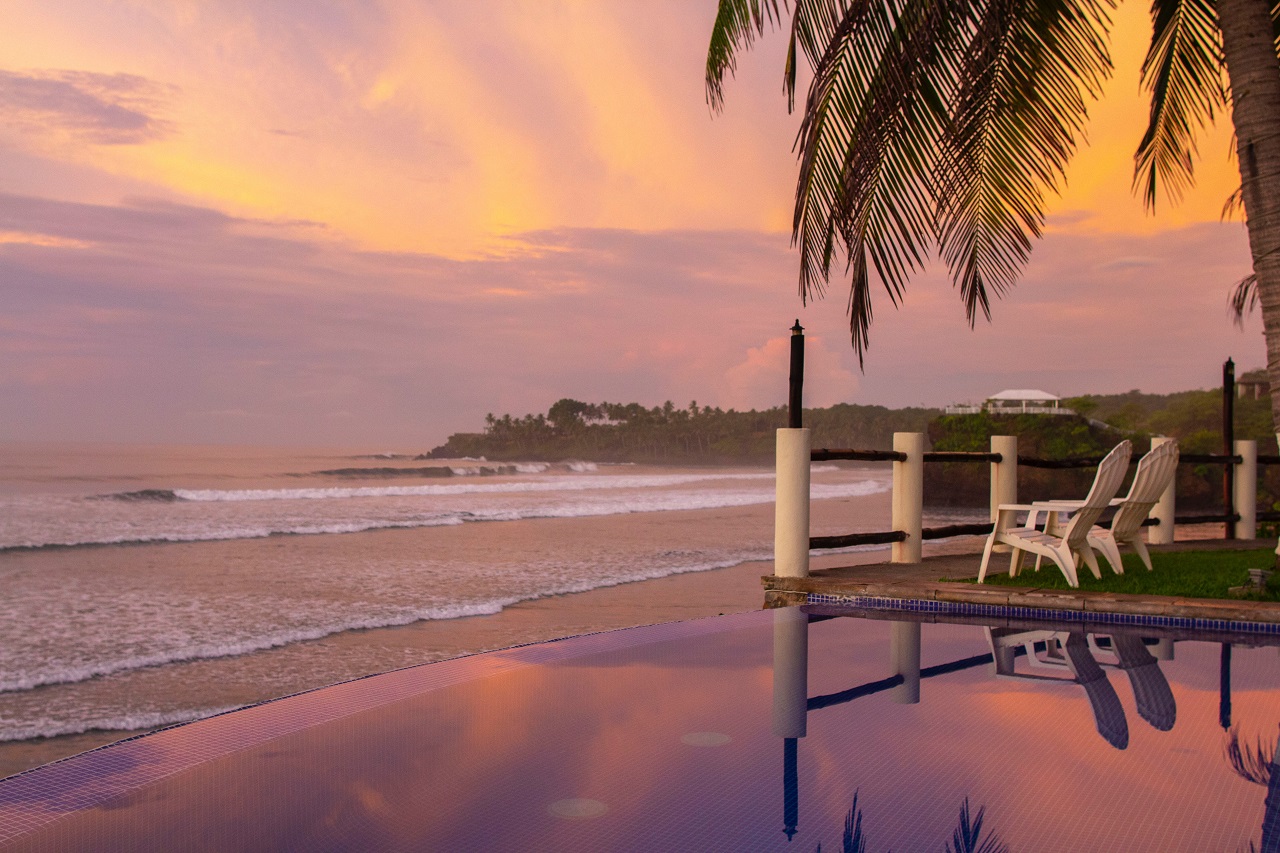El Salvador is the smallest country in Central America, but has one of the biggest reputations. It is well known for its high crime rate, and gang violence headlines dominate your computer screen when you search it on Google. However, beneath this reputation there are luscious mountains and vast rainforests, broad valleys wedged between incredible volcanoes, and black-sand beaches with perfect surf.
So what is it really like there? Which of these two sides of El Salvador wins out? We asked one of our teachers, Matthew Sytsma, a few questions to find out.
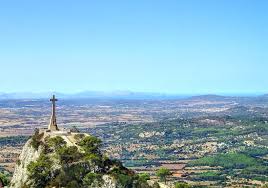
Where are you teaching and what is it like to teach over there?
I live in San Salvador and work at The American School of El Salvador (Escuela Americana). I’ve worked here for 5 years now and have almost all good things to say about the school and the country. The students here are great, the only behavioural “issue” is general chattiness, but that is a very manageable problem. As in any school, there are dedicated students who perform well in all their courses, and the other “half” you need motivate with creativity and positivity. All of the students are generally good kids with positive intentions. They want to get to know you and are eager to have meaningful discussions in class.
What is the city like? Is there an expat scene? What do you do in your free time?
Life in El Salvador is AMAZING! There is so much to do. The American School community has been great every year so far.. The current community has people with many different interests: from Dungeons and Dragons, to serious biking, to surfing, to ultimate frisbee, to travel, etc.
I feel safe living here. The neighborhood for international teachers is gated off from the school and has its own guards protecting the gate from the street. The school and housing are located in a very safe and beautiful neighborhood. The community is enriched by the very large US Embassy that is a 10 minute drive from the school, where a group of us play ultimate frisbee twice a week. There is also a great community of international teachers working at the British School, 10 minutes away. Between the American School, The British School, and the US Embassy, plus all of the other expats here for various other jobs, the community is great.
El Salvadorans are also some of the most welcoming people in the world. You will feel accepted immediately pretty much anywhere you go. I had the opportunity to play American football with a group of local El Salvadorans, some of my friends from the British school also joined a local rugby team. There are local cultural events such as a fireball throwing celebration in Nejapa and a day of the dead (they call it “La Calabiuza”) celebration in Tonacatepeque among many others.
Another happy teacher, moved to Mexico! Read his first impressions.
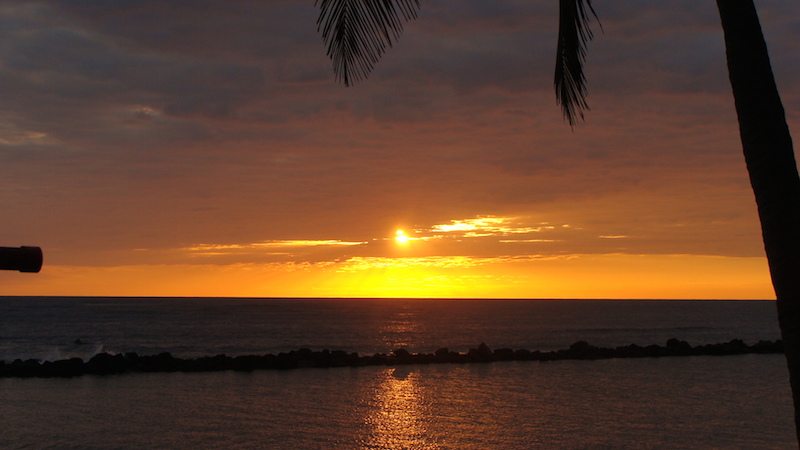
Which tourist sites or must-visit places are nearby?
El Salvador has a little bit of everything and its all within 3 hours (most much closer). There are great volcano hikes (the best is Santa Ana), there are beautiful crater lakes (Lago de Coatepeque and Lago Ilopango), there are beautiful rainforests (Imposible National Park), excellent camping/hiking (Montecristo), Mayan Ruins (Tazumal), and some of the most beautiful beaches you will ever see (Punta Mango, El Zonte, etc).
There are so many things to do in El Salvador too. It is probably the best country in the world to learn to surf. The water is warm, the waves are consistent, there are no sharks and the crowds are much smaller than in the rest of the world. Our expat group gets together over many weekends to rent out a beach/lake house. (The best one is at the surf point “Punta Mango”).
Another of our teachers has written a blog about living in Quito, Ecuador.
What is the climate like? Is there any extreme weather? If so, how do you deal with it?
It feels like summer all year round. There is a dry season (November – May) and a rainy season (June – October). During the rainy season it rains pretty consistently in the late afternoon, but the rest of the day is still sunny. Overall, amazing climate compared to most places in the world.
What is the food like? Is international food available? Have you tried any unusual local dishes?
The local food is pupusas (tortillas packed with ingredients in the middle), eggs, chicken, rice, local cheese, plantains, etc. It’s a tropical climate so you get all the fruit and veggies that typically go with that.
There is also a decent amount of other international options at a relatively cheap price. There are some good German restaurants, Indian food, Italian, Sushi, etc.
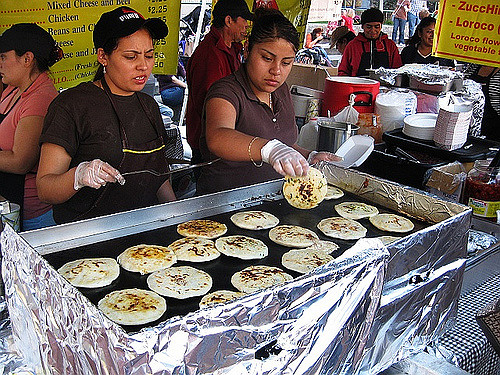
How is the culture different from your home culture? Have you experienced any culture shock?
The biggest culture shock for me is always when I go back to the US. People are extremely nice and genuine here. You feel welcomed and are treated like you are special. Going back to the US people seem more stressed, less genuine, and as if they care less about others.
You will read a lot about gangs and violence in the news about El Salvador. The news is all true and it is very sad that ugly things are happening in parts of this beautiful country. Know however, that El Salvador is very clearly split into safe areas and not safe areas. There are a few places you do not ever want to go to in El Salvador, but most of the country is safe compared to other countries, even those with better reputations right next door. In my five years here I have never been robbed or heard any gun shots. The crime in El Salvador is gang related and rarely comes in contact with expats or tourists. I have heard many horror stories of robbings in Guatemala and Honduras, but very few in El Salvador. Again, it is horrific what the gangs are doing to the local poor and marginalized population, but those problems have not yet affected expat life in the country.
What’s the cost of living like? Are you able to save money?
It’s really cheap living in El Salvador, and it helps that the school sets you up with a house. The only cheaper country I’ve come across in Central America is Nicaragua.
Are there any drawbacks to living in your city? What kind of person would not be suited to this location?
There’s a big drawback if you are the kind of person who just goes home after work and stays there. The coolest things to do in El Salvador are outside of the city (there are some great things inside the city during the week that I mentioned before as well). For this reason either having a car, or having a close friend with a car is vital, as the public transportation isn’t very safe.
What advice would you give to someone who was thinking of coming to live and work in your current location?
Come with an adventurous spirit and you won’t be disappointed. This school and this country has a ton to offer if you come with a positive attitude and are willing to throw yourself out there a bit.
Having written this I’m confused as to why I’m leaving… You would not regret coming to this beautiful country with its wonderful, welcoming people, and vast array of things to do. You would fall in love with it, and be happy in your work. I would full heartedly recommend working in El Salvador to my closest friends and family.
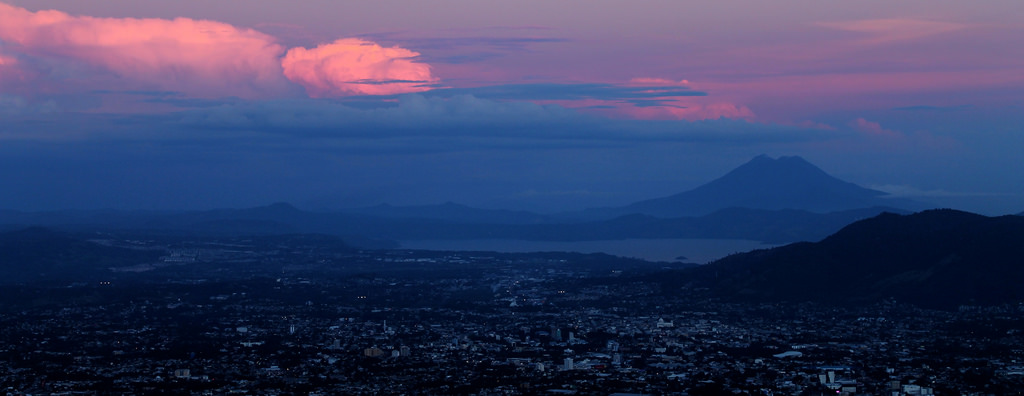
So perhaps, in fact, El Salvador could be Central America’s most underrated country! Are you keen to see for yourself? Why not browse schools and check out our current vacancies? Sign up to Teacher Horizons and access the full details.



